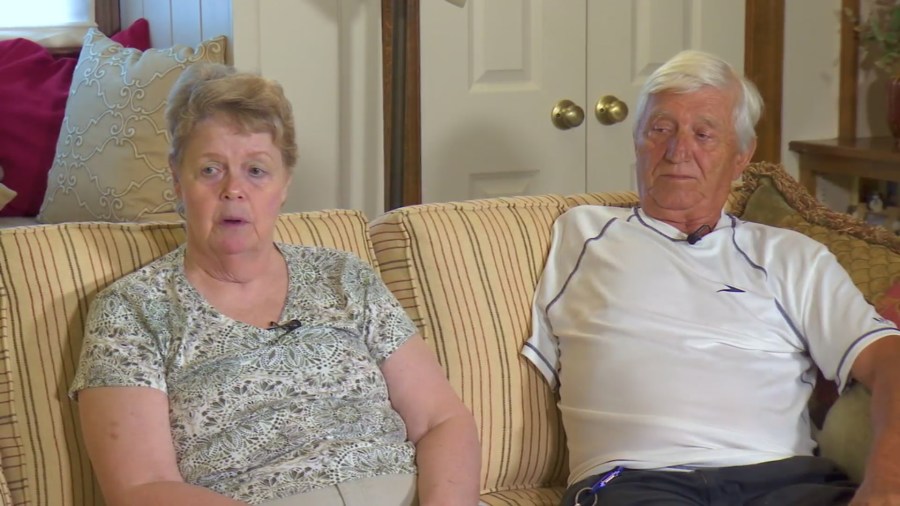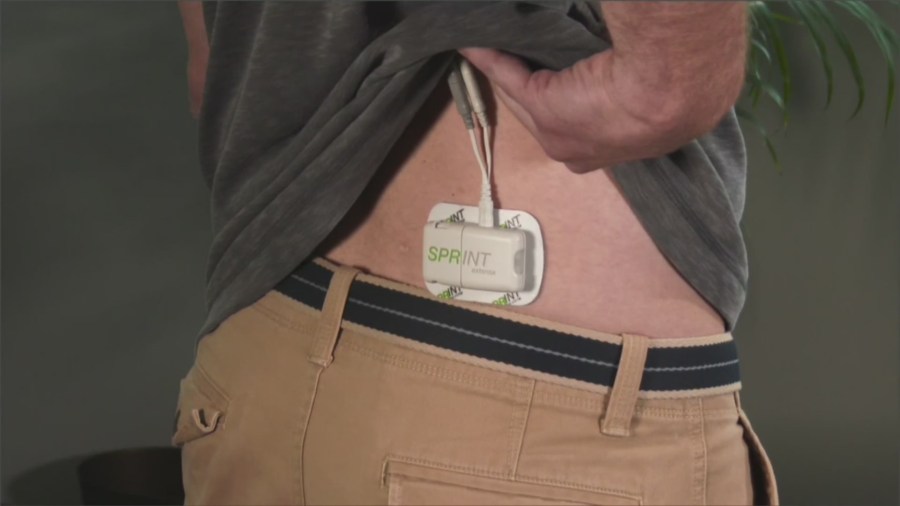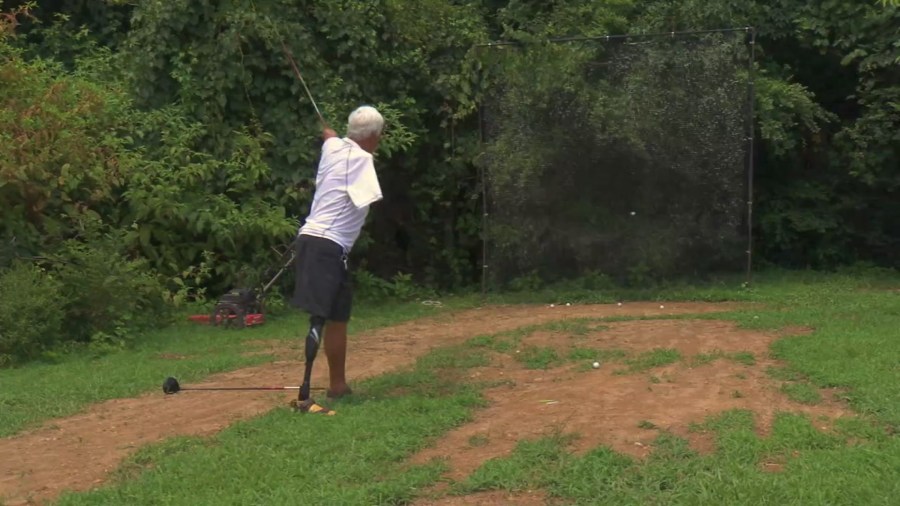A major medical breakthrough happening at VCU Medical Center has a double amputee now living pain-free. So much so, he has been able to get back on the green to perfect his golf game. It’s all thanks to a non-surgical, non- invasive device that could be an alternative to opioids for anyone who suffers chronic pain.
Henrico resident Kenny Loving lost his arm and leg in a workplace accident. But Loving’s wife, Adrienne, says that wasn’t about to end her husband’s golfing game.
“When he laid up in that bed he kept saying, ‘I am playing golf, I am playing golf,’” Adrienne recalled.

Kenny stuck to his word and, just months after leaving the hospital, he was back on the green and playing better than ever.
“That’s a hole in one that I had in 2002,” Kenny said pointing to a framed certificate on the wall. “I hadn’t gotten one when I had two arms and two legs.”
It wasn’t until several years after his accident that Loving suddenly started having chronic pain in the stump of his leg.
“It started off hitting off like electricity. It hit so hard you couldn’t breathe, he explained. The pain was cutting into his tee time. “It got to the point where it was happening overnight. You can’t sleep.
Persistent pain is a common problem for amputees; the National Institutes of Health (NIH) reports 74% suffer residual limb pain and 85% feel phantom limb pain.
Adrienne says Kenny wanted to avoid opioids.
“This one doesn’t like painkillers,” she explained.
Desperate for help, the Loving’s learned of Sprint PNS. Dr. Marc Huntoon at VCU was the first to use the nerve stimulation device. A thin coil wire, the size of a hair, is implanted in the patient for up to 60 days and then removed.

“They put you to sleep and you wake up and it is done,” says Kenny. The wire is attached to a generator that’s worn on the body and delivers mild electrical pulses to the nerves. Kenny’s device was removed in just 30 days.
“He hasn’t had any problems since, he is good to go,” says Adrienne.
A year and a half later, Kenny is still pain-free.
“It works,” he says.

“We were amazed because it is such a minimalistic procedure to get the result he’s gotten, added Adrienne.
Now, Kenny is back on the golf course several times a week.
“The quality of life is totally different,” says Adrienne.
Seeing Kenny’s success, doctor’s believe this device can be a non-opioid alternative for anyone who suffers chronic back, shoulder and knee pain. If you would like to learn more about Sprint PNS or hear from other patients click here.









